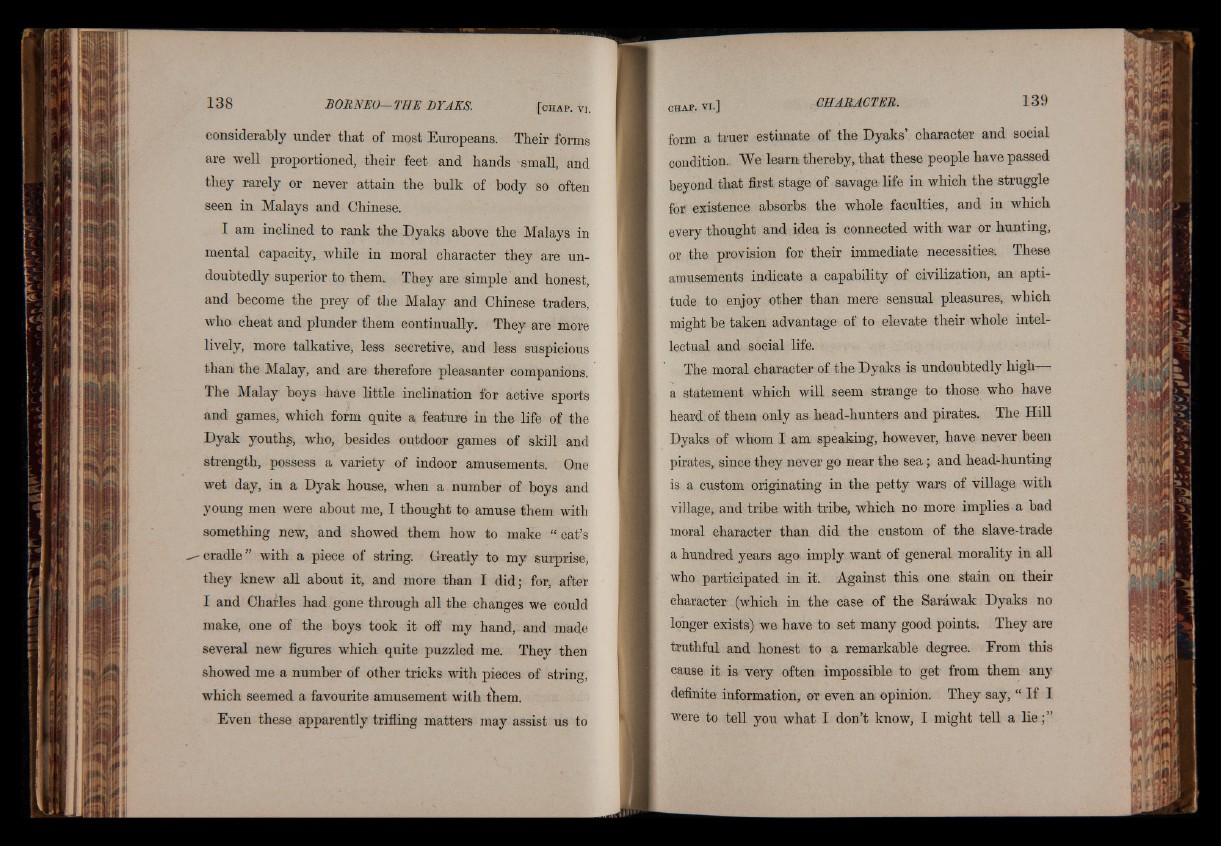
considerably under tbat of most Europeans. Their forms
are well proportioned, their feet and hands 'small, and
they rarely or never attain the bulk of body so often
seen in Malays and Chinese.
I am inclined to rank the Dyaks above the Malays in
mental capacity, while in moral character they are undoubtedly
superior to them. They are simple and honest,
and become the prey of the Malay and Chinese traders,
wha cheat and plunder them continually. They are more
lively, more talkative, less secretive, and less suspicious
than the Malay, and are therefore pleasanter companions.
The Malay boys have little inclination for active sports
and games, which form quite a feature in the life of the
Byak youths, who, besides outdoor games of skill and
strength, possess a variety of indoor amusements. One
wet day, in a Dyak house, when a number of boys and
young men were about me, 1 thought to amuse them with
something new, and showed them how to make “ cat’s
cradle” with a piece of string. Greatly to my surprise,
they knew all about it, and more than I did; for, after
I and Charles had. gone through all the changes we could
make, one of the boys took it off my hand, and made
several new figures which quite puzzled me. They then
showed me a number of other tricks with pieces of string,
which seemed a favourite amusement with them.
Even these apparently trifling matters may assist us to
form a truer estimate of the Dyaks’ character and social
condition.. We learn thereby, that these people have passed
beyond that first stage of savage, life in which the struggle
for existence absorbs the whole faculties, and in which
every thought and idea is connected with war or hunting,
or the provision for their immediate necessities; These
amusements indicate a capability of civilization, an aptitude
to enjoy other than mere sensual pleasures, which
might, be taken advantage of to elevate their whole intellectual
and social life.
The moral character of the Dyaks is undoubtedly high—
a statement which will seem strange to those who have
heard of them only as head-hunters and pirates. The Hill
Dyaks of whom I am speaking, however, have never been
pirates,, since they never go near the sea; and head-hunting
is a custom originating in the petty wars of village with
village, and tribe with tribe, which no more implies a bad
moral character than did the custom of the slave-trade
a hundred years ago imply want of general morality in all
who participated in it. Against this one stain on their
character (which in the case of the Sarawak Dyaks no
longer exists) we have to set many good points. They are
truthful and honest to a remarkable degree. From this
cause it is very often impossible to get from them any
definite information, or even an opinion. They say, “ If I
were to tell you what I don’t know, I might tell a lie ;”